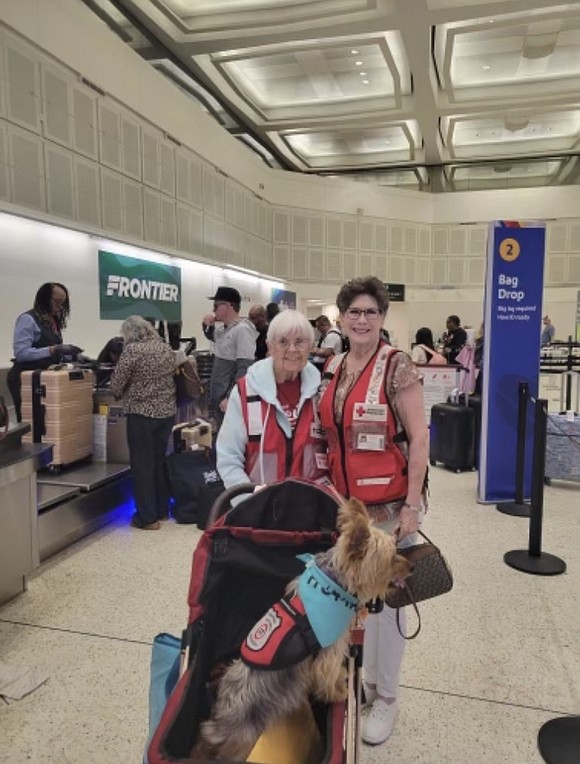Texas Gulf Coast Red Cross Deploys Volunteers Ahead of Hurricane Lee
Style Magazine Newswire | 9/19/2023, 12:32 p.m.

Hurricane Lee is threatening parts of the East Coast with strong winds, a devastating storm surge and heavy rain later this week. The American Red Cross is preparing to respond and urges everyone in Lee’s potential path to monitor their local weather and be prepared for this storm.
The Texas Gulf Coast Red Cross region and our dedicated volunteers are preparing to respond to Hurricane Lee before the storm makes landfall. Across the region, we have deployed more than a dozen volunteers to locations on the East Coast, where they will assist with sheltering and other storm response needs.
Even if the storm weakens, the National Hurricane Center warns that will not diminish the storm’s potential for devastating impacts. Because of the storm’s monstrous size, areas far away from the storm’s center could still see Lee’s effects.
Tropical storm-force wind gusts could impact portions of Connecticut and eastern Massachusetts Friday night and affect other areas in New England this weekend. Maine is likely to see the worst effects of the storm with strong winds, heavy rain and waves that could be more than 30 feet high. Due to ongoing heavy rain, the ground is already saturated in many of the areas where Lee is expected to hit, increasing the risk of flooding.
RED CROSS GETS READY The Red Cross is monitoring the storm closely and preparing to respond as Hurricane Lee heads north. We pre-positioned disaster teams and supplies to be ready to support communities who may be impacted by the storm.
We are deploying enough workers and supplies to be able to help thousands of people. This includes as many as 25 shelter teams and 40 Red Cross emergency vehicles standing ready to support a large relief response. Additional volunteers and emergency supplies are on standby in case they are needed. The Red Cross has also pre-positioned blood products in the region in advance of the storm and stands ready to provide additional blood products if hospitals need support.
In addition to preparing for an East Coast hurricane, we are continuing to respond to Hurricane Idalia in Florida with two volunteers still on the ground. The people of Maui are receiving support after unprecedented wildfires, and five more volunteers will be joining our seven volunteers on the ground. Your support during these climate-related disasters makes our volunteers’ work possible.
YOU CAN HELP Financial contributions enable the Red Cross to prepare for, respond to and help people recover from disasters big and small. Visit redcross.org, call 800-RED CROSS, or text the word REDCROSS to 90999 to make a $10 donation.
IF YOU KNOW SOMEONE WHO NEEDS SHELTER In the coming days, emergency shelters are likely to open in some areas along the East Coast. Anyone who needs a safe place to go can find information about open shelters on redcross.org, the free Red Cross Emergency app or by calling 1-800-RED CROSS (800-733-2767). You can also check with local officials and monitor local news for information on where to find emergency shelter.
We encourage people who plan to stay in a Red Cross shelter to bring prescription medications, extra clothing, pillows, blankets, hygiene supplies, other comfort items and important documents. Don’t forget to bring any special items for children, such as diapers, formula and toys, or for family members who have unique needs.
The climate crisis, according to scientists, is making hurricanes worse in the United States by increasing their intensity. As extreme weather increases, more people need help from the Red Cross. Find out more about the Red Cross and its work on the climate crisis at redcross.org/climate.








